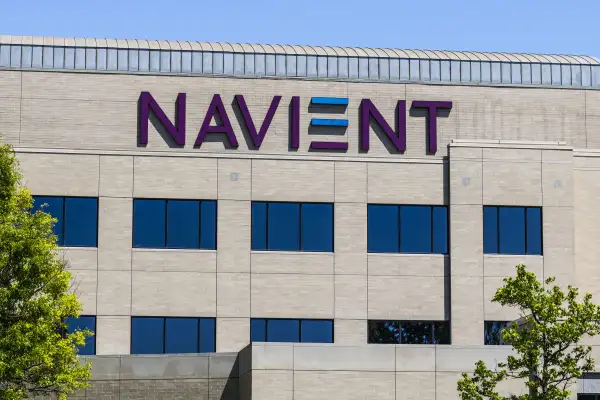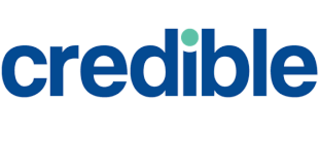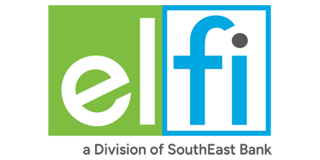Navient Is Quietly Forgiving Private Student Loans Amid Pressure From Lawmakers

When it comes to student debt forgiveness programs, borrowers with private student loans are almost always left out. Now, a new program might finally give them relief — if they can manage to apply.
Amid pressure from Democratic lawmakers, student loan servicer Navient has begun quietly piloting a private loan discharge program for borrowers who attended colleges that misled or defrauded students to get them to enroll and take out loans.
For decades, borrowers with federal student loans have been able to receive forgiveness under the same circumstances through the U.S. Department of Education's borrower defense program. In some cases, the relief even came automatically.
If the loan was private, however, borrowers were basically told to “go pound sand” by their servicers, Eileen Connor, director of the nonprofit Project on Predatory Student Lending (PPSL), tells Money. “We’re talking about the exact same people and the same set of facts.”
For the first time, there’s recourse for defrauded borrowers with private student loans that doesn’t involve a courtroom: Navient’s school misconduct discharge program.
Applying is ‘wildly confusing’
Formerly part of Sallie Mae, Navient used to be the largest student loan servicer in the nation. In recent years, it has been drastically winding down its student loans division, shrinking its private student loan portfolio from $30 billion in 2014 (when it split from Sallie Mae) to $8 billion in 2023, according to federal filings.
The existence of Navient’s new discharge program largely came to light when the PPSL launched a campaign on May 30 to encourage borrowers to apply. The nonprofit legal organization also released a step-by-step guide to request loan forgiveness.
“The campaign aims to draw attention to the new Navient application, which has not previously been made available to the public,” PPSL said in a news release.
According to Connor, PPSL first became aware of the initiative in March, when one of its clients received the application packet from the company, unprompted. PPSL now has a photocopy of the 12-page application available on its website. Before that, only a limited number of borrowers seemingly “hand-selected by Navient” received the application when inquiring about loan discharge, she says.
Alas, tracking down the form is merely the first step. Sen. Elizabeth Warren, D-Mass., recently tweeted that the application process is “wildly confusing.”
Many borrowers would agree. A community on Reddit has recently banded together to share application strategies and Navient communications, crowdsourcing information and aiming to make as comprehensive an application as possible. Nearly every post details the extent to which the person had to go to apply. In several cases, simply receiving the application required filing a complaint with the federal Consumer Financial Protection Bureau, or CFPB.
One Redditor said the application took two and a half weeks to complete due to the supporting documentation that is required. In addition to filling out the 12 pages, Navient requests proof the college deceived or aggressively pressured the applicant into enrolling or taking out loans — and then proof of material harm such as a lack of job prospects or inadequate training or certification. Then, the waiting begins. “This is going to be a very anxiety ridden summer,” the recent applicant wrote on Reddit.
To Connor, the application is "laborious and unnecessary," especially because folks with federal loans don't have to go through such a secretive process.
In an email to Money, a Navient spokesman pushed back on the characterization that the application is confusing, saying that information about loan forgiveness and discharge is “readily available” on the website. Navient provided a link to a page about repayment options for private student loans.
The page includes eight menu options, the last of which is “loan forgiveness and discharge.” Navient goes on to broadly outline the various circumstances in which borrowers may be able to receive forgiveness.
“We work with borrowers and families in the event of disability, loss of life, school misconduct, and certain other circumstances,” the site states, prompting borrowers to call Navient for more information.
Navient’s website currently has no mention of the school misconduct discharge program by name, nor a readily available application. Ultimately, the discharge program is run through Navient's Office of Consumer Advocate, which can be reached at (888) 545-4199 ext. 998214, or by email at advocate@navient.com.
“Because this is a new process, we ask that people call us at this time, but we will continue to evaluate the application process and update as it makes sense,” the spokesperson tells Money.
Who qualifies for Navient’s loan forgiveness plan?
The key qualifications to receive forgiveness from Navient are No. 1: Borrowers must have proof of being defrauded by their college, and No. 2: The loan must be serviced by Navient.
Beyond that, it’s not clear who exactly is eligible for relief.
On the federal side, the borrower defense program run by the Department of Education has discharged loans for over 1 million Americans during the Biden administration alone. The Education Department has also named 10 for-profit colleges or institutions that broadly defrauded borrowers, including American Career Institute, DeVry University, ITT Tech, Corinthian Colleges (Everest, Heald, etc.) and, most recently, the Art Institutes. In many of those cases, the department forgave the loans without borrowers having to take any action.
Ostensibly, borrowers who had their federal loans canceled by the Education Department would be eligible under Navient’s plan to forgive any remaining private loans, but that is not guaranteed.
“Only Navient knows how many exactly are eligible,” Connor says, speculating that the number is in the tens of thousands.
Navient has publicly stated to investors and lawmakers that it has set aside $35 million in connection with school misconduct discharges. But given the scale of the fraud, Connor estimates that's not nearly enough.
“When you have a 12-page application form that you don't make public, and it's not on your website, and you don't have clear instructions,” she says, “it’s like you're really trying to just create arbitrary barriers for people.”
A path forward for private student loan forgiveness?
Right now, the private loan forgiveness option is only being tested out by Navient, which has been the subject of lawsuits from several state attorneys general and the CFPB.
In a recent letter to Navient, Warren and eight senators said that the company “engaged in predatory loan practices with fraudulent, for-profit colleges in exchange for a steady supply of borrowers.” They alleged it still holds many of those fraudulent loans in its portfolio and pushed for their discharge.
For its part, Navient says it “has not originated loans to students attending any for-profit schools since 2014” and that its predecessor company, Sallie Mae, ceased lending to underperforming for-profit schools several years before that. In January, the company announced that it was exiting the student loan servicing market and transferring student loan accounts to rival servicer MOHELA.
According to Connor, the legal basis for canceling the loans applies to all private student loans — not just ones serviced by Navient. At the crux of the rationale for forgiveness is what’s called the “Holder rule,” a longstanding rule by the Federal Trade Commission. Essentially, the rule states that loans made for fraudulent goods or services can be discharged, and any payments already made on the loan should be refunded.
Before the Navient program, determining whether a loan was subject to discharge under the Holder rule was a slog, Connor explains, and often involved an individual borrower defaulting on the loan and battling it out in court.
Even though the application process is arduous for some borrowers, it is certainly less time-consuming than a lawsuit. And Connor says it could open the door for broader forgiveness for private student loans at other companies.
“People who have private student loans and have gotten their federal loans wiped out [due to fraud] should be contacting their servicer, whether it's Navient or not," she says. “If they get no answer, keep asking, and let the CFPB know about it.”
More from Money:
Biden's New Student Loan Forgiveness Plan Could Cancel $150 Billion of Debt
Student Loan Debt Has Forced Over 70% of Borrowers to Delay Major Life Events






